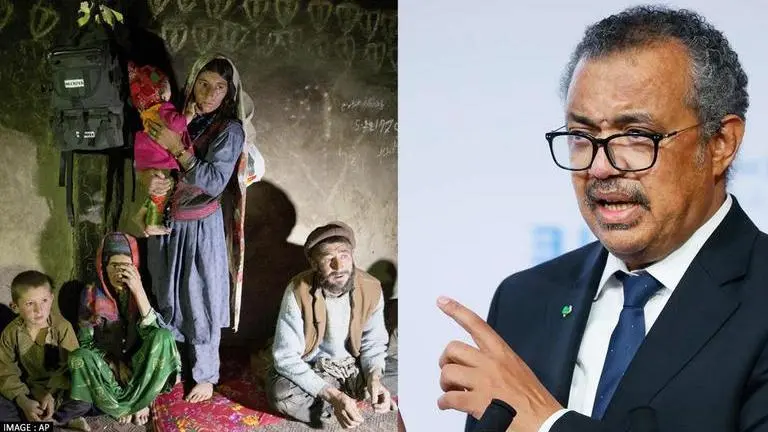Updated 26 January 2022 at 11:21 IST
Afghanistan's healthcare system 'seriously under threat', foreign donation necessary: WHO
WHO stated that the healthcare systems in Afghanistan are in grave danger owing to a lack of foreign financing, urging foreign contributors to step up
- World News
- 3 min read

Amid the ongoing humanitarian crisis in Afghanistan, the World Health Organization (WHO) has raised concern about the basic and primary life-saving health care services in the war-torn nation. WHO stated that the healthcare systems in the nation are in grave danger owing to a lack of foreign financing. According to a report by WHO, "Today, the population's health is seriously under threat. All the progress in health outcomes may be lost.”
Referring to the seriousness of the situation, WHO has been urging foreign contributors to step up for donations and develop a new financing channel for this vital primary health care effort. WHO further claimed that primary health care is the bedrock of the national health system, serving millions of citizens across the nation.
According to the report, the Sehatmandi program is the pillar of Afghanistan's healthcare system. It covers nearly 64% of all public health institutions and delivers cheap, accessible health care to millions of citizens through 2,331 healthcare facilities in 34 provinces.
Afghan health crisis
However, due to the shift in Afghanistan's regime after the Taliban took over Kabul on August 15, the Sehatmandi program is no longer able to secure adequate financial assistance, this issue is also being mirrored across the nation. Further, donors considered it hard to supply funds during the Taliban's capture and substantial financing was discontinued. These crucial, basic health care services, which were previously sponsored by the World Bank, the European Commission, as well as USAID, are now facing major problems.
Advertisement
In addition to this, a severe drought has harmed crops as well as cattle, which led the population to suffer adversely, as per the WHO report. During the period of September and October 2021, this, along with growing food costs and the breakdown of governmental services, resulted in extreme food insecurity for approximately 19 million people.
As the country's healthcare system continues to crumble, the Ministry of Public Health of Afghanistan stated that it is striving to draw more foreign help to the country's health sector. Javid Hazhir, spokesperson for the Ministry of Public Health revealed, “If aid that is provided in the health sector is not distributed in coordination with the Ministry of Public Health, the crisis in the health sector may escalate and people may face many problems," Tolo News reported.
Advertisement
Furthermore, the WHO report came after residents of Paktia have been complaining about the shortage of health care services in the region, and they have asked the United Nations to supply them with the same.
(Image: AP)
Published By : Anwesha Majumdar
Published On: 26 January 2022 at 11:21 IST
